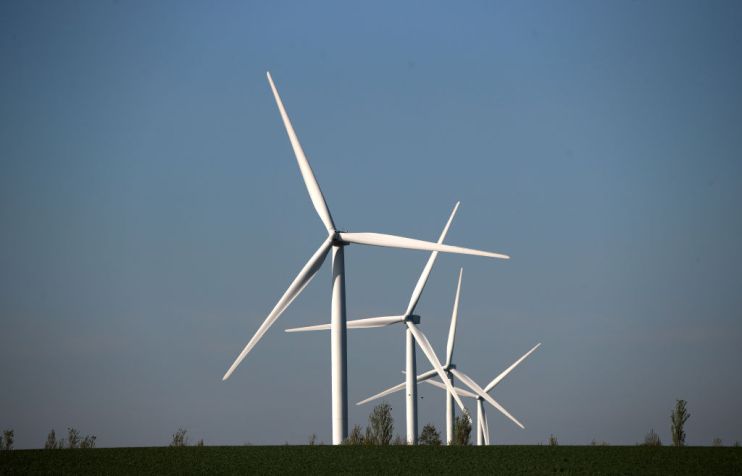SSE profit slumps as pandemic weighs on electricity demand

Big Six energy supplier SSE reported a sharp drop in profit in its full-year results today, following a slump in electricity demand during the pandemic as businesses across the country ground to a halt.
The figures
The British utility firm reported a 55 per cent slump in profit before tax to £587.6m in the year ended 31 March 2020, following a strong performance from the company in 2019.
Reported operating profit shed 40 per cent to £963.4m from £1.61bn the year before, as the firm said it lost £18.2m-worth of electricity demand during the pandemic.
The firm cited exceptional charges of £738.7m before tax, including a £33.7m charge from coronavirus bad debts.
In total, SSE said it estimated the impact of coronavirus on operating profit to hit between £150m and £250m before mitigation for the upcoming financial year.
However, the firm’s adjusted profit before tax, which was up 49 per cent to £1.02bn, beat analysts’ expectations.
Shares rose 9.5 per cent at 1,389p on the news at 9am.
Earnings per share were down 67 per cent to 40.6p for the year.
The board trimmed its full-year dividend to 80p, saying it was “vital” for people’s pensions and savings. A final dividend payment of 56p per share is expected to come later in the year,
Why it’s interesting
Coronavirus has eaten into most UK energy firms’ financial figures, as bricks-and-mortar businesses only just begin to reopen after months of closure during the lockdown.
That said, SSE said challenges related to the pandemic were likely only to have short-term adverse effects on business. The Scottish-headquarted company said Covid-19’s impact would be “substantial in the context of one year, but largely temporary in duration”.
The FTSE 100-listed firm today unveiled a £580m investment in the Viking wind farm on the Shetland islands as part of plans to plug £7.5bn over the next five years into projects to help its transition to net zero emissions.
SSE announced a new target to cut its carbon output 60 per cent by 2030, building on the 50 per cent reduction it has already achieved.
Investors were cheered by the move, especially following news yesterday that rival firm BP is set to write off $17.5bn (£13.9bn) following a crash in oil demand during the pandemic, as the public looks towards a more renewable future.
SSE freed up cash for the capital investment following the sale of its household energy arm in January to Ovo — the UK’s second largest energy supplier — in a £500m deal.
What executives said:
Richard Gillingwater, chair of SSE, said:
“Since March, SSE’s overriding priority has been to support the safe and reliable supply of the electricity upon which the people and organisations responding directly to coronavirus depend and the commitment of people across SSE in challenging circumstances has been outstanding.
“It is still too soon to predict with accuracy the full human, social, economic and business impact of coronavirus; but we have put in place a comprehensive plan to achieve the related objectives of sustaining the dividend payments which provides vital income for people’s pensions and savings.
“Climate change remains a critical issue and we see significant opportunities to create sustainable value for shareholders and society through contributing to a much-needed green economic recovery and supporting the transition to net zero emissions.”
SSE chief executive, Alistair Phillips-Davis, added:
“SSE is very well placed to emerge from the challenges arising from coronavirus and to create value for shareholders and society for years to come.”